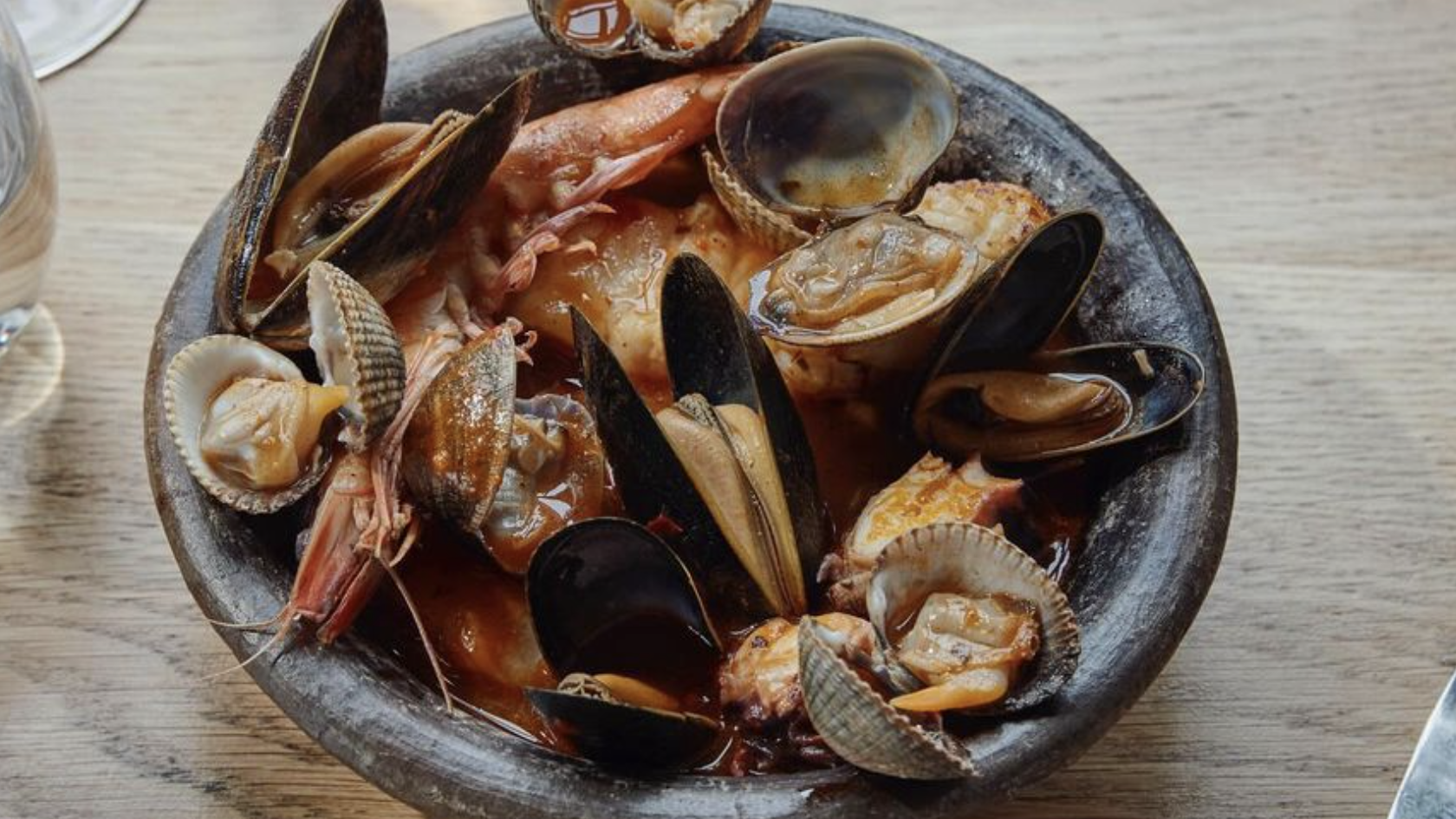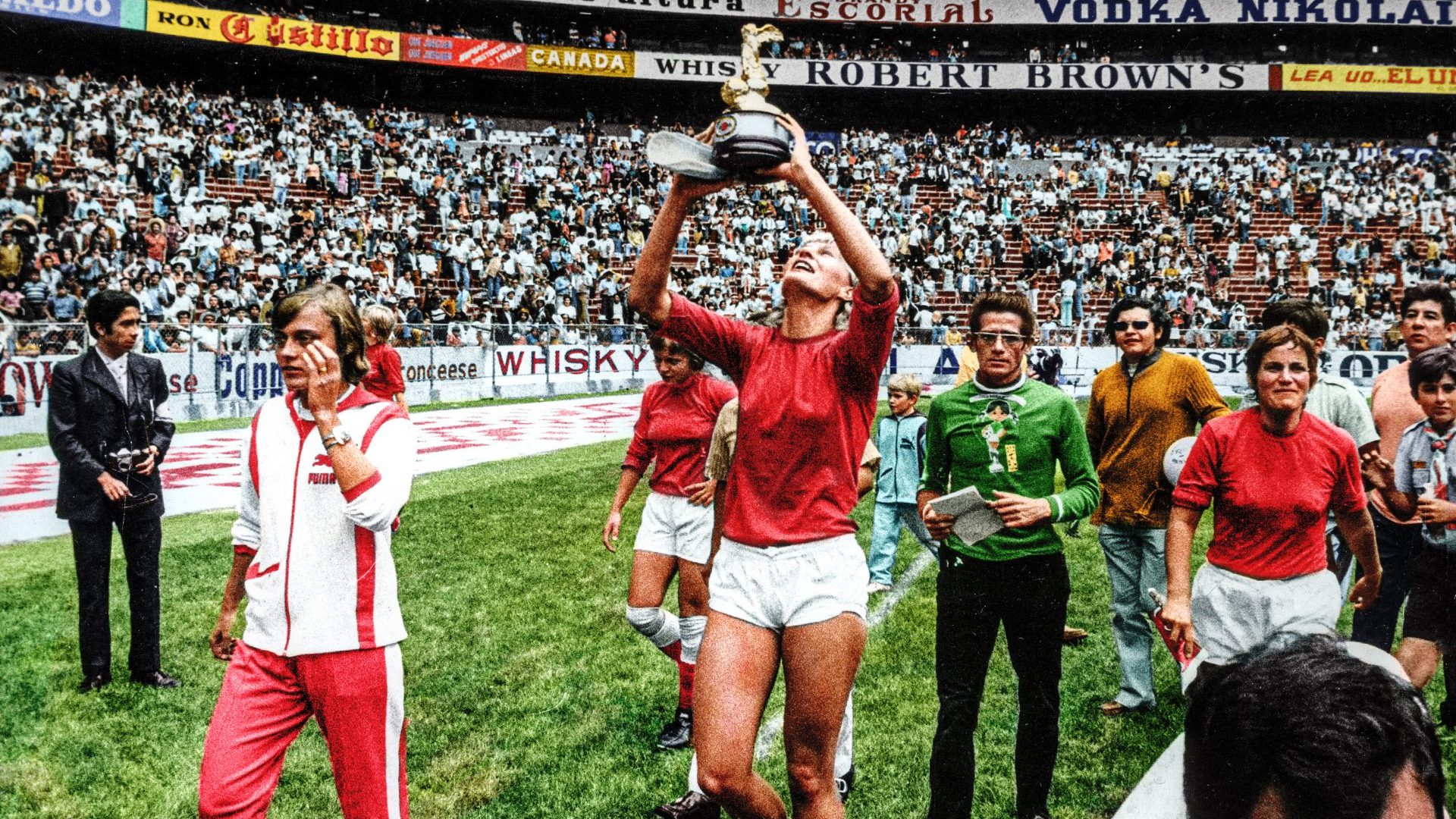Whenever “the internet” talks about “British food”, roast dinners, fry-ups, steak and kidney puddings are mentioned. Peak stodge. A three-course dinner in an English restaurant might begin with beans on toast, move on to shepherd’s pie and end with trifle. Ultimately quite uninspiring.
It would be fair to say British cuisine doesn’t have the finest reputation. It has been poorly marketed. Fish and chips photographs reasonably well but otherwise it is aesthetically extinguishing. Only cake, by way of The Great British Bake Off, is generally viewed with acclamation.
In New York, there’s a British-themed restaurant called Lord’s. I haven’t been because when I’m in the Big Apple I like to make the most of it: Ninja Turtles pizza, Korean BBQ, dumplings and salt beef sandwiches. The menu at Lord’s includes barley-stuffed cabbage, veal sweetbreads with Marmite, and a curried lamb scotch egg.
There isn’t anything wrong with old-fashioned British cooking: comforting dishes that soothe. Who cares if they look unruly? If anything, I think there’s nowhere to hide with this country’s classics, and a true appreciation of flavour is required because often you’re working only with a bag of mince, a handful of carrots and some muddy potatoes.
But I also think its image needs an overhaul in a broader sense. British food is the sum of centuries of migration – a curry here, noodles there, a Greek taverna in Manchester or a Spanish tapas joint on a cobbly side street in Bristol.
And then there are modern restaurants that amalgamate many of these parts to produce a new style of food entirely. One is Morchella, one of the most interesting restaurants to open in the UK so far this year and the work of the team behind Perilla, a very east London haunt with lots of pickled walnuts and trompette mushrooms. In the kitchen at Morchella are Ben Marks and Daniel Fletcher, both of whom have impressed on the BBC’s Great British Menu.
The team says Morchella is a “modern interpretation of classical dishes from across the Mediterranean, prepared with the highest quality produce.” It is that – but it also moves new-age, big-city food on by taking it back to its origins. The dishes are timeless even if there have been modern techniques imparted alongside whimsical twists.
A recent visit included spanakopita, from Greece, served as dainty filo pastry rolls, the spinach and feta inside tightly prepared as cylinders to create miniature morsels, each bite a reminder of visits to Greek islands. And there was a version of vitello tonnato, that prized Italian entree, where the veal had been wrapped around what I think was dandelion leaves with tuna mayonnaise – a little less subdued than that dolloped on jacket potatoes – inside and a heavy dose of salt and pepper.
Salt cod churros might have been the pinnacle – two soft, fish-hewn dough-straws as soft as anything, served with a spiky romesco and faintly Iberian. Hake came covered in salty sobrasada sauce and two queen scallops arrived in a trench of butter – French, I suppose – together with curls of squid and cauliflower.
These are un-British by design but in the context of the time, the moment, the setting and the culture of London today, I’d argue they combine to bring about a keen sense of place; an identity, too. Many chefs in London, Manchester, Edinburgh and beyond have been doing this for years, cherry-picking the best of global cooking and turning it out with a flurry of home. Morchella has gone one further, and if there is to be a campaign to better equip the world with an understanding of the food we have here, it would be a good restaurant to throw into the mix.
I really think it’s an invigorating time for British dining. For all the failings of this country these past years, one industry that has improved, year after year, is restaurants. We’ve not just caught up with the rest of Europe, we’ve carved out a special sort of dining of our own.




